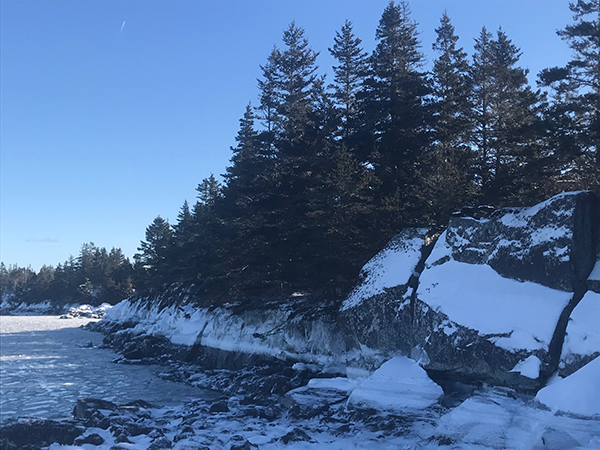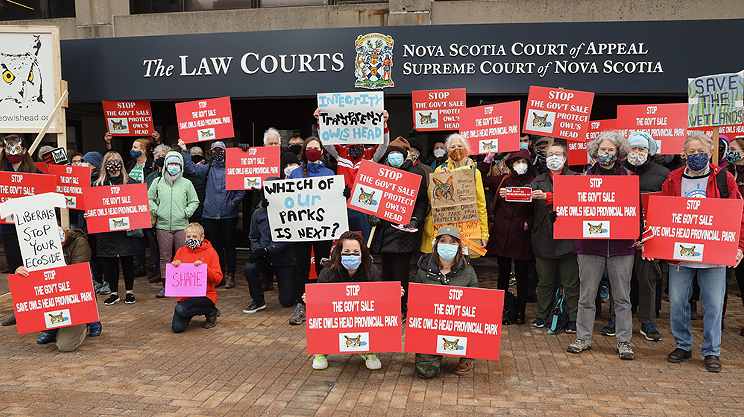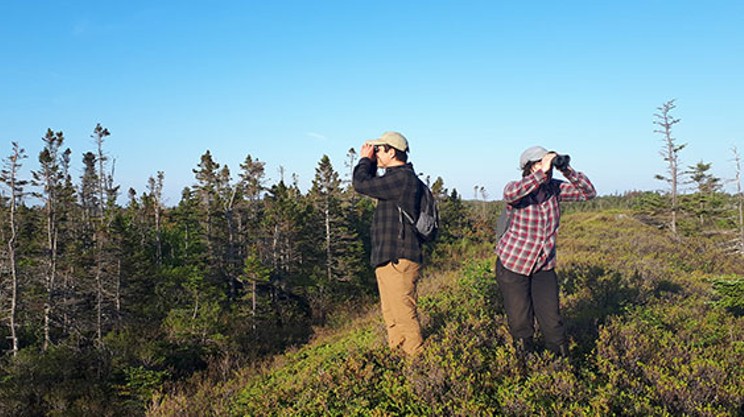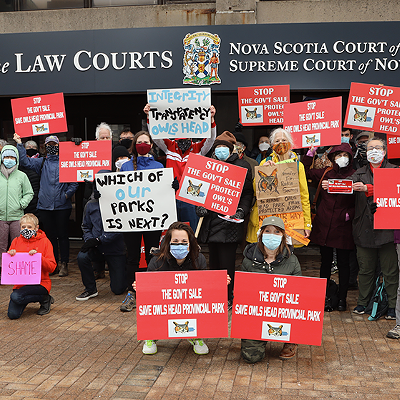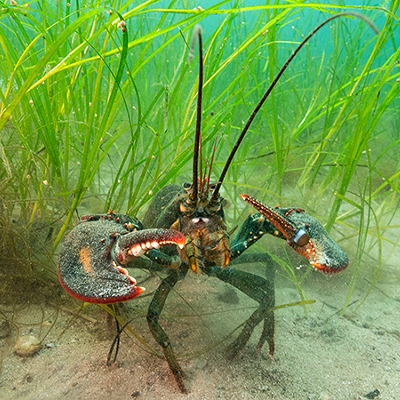More than 200 people packed into the Ship Harbour Community Centre in the afternoon on Sunday, January 26 in the latest escalation of a land-use dispute over the selling of protected Crown land to a private developer to build three golf courses—a dispute that also jeopardizes the province's reputation as a safe place to invest.
On December 18, 2019, CBC's Michael Gorman stunned Nova Scotians when he discovered through a timely FOIPOP request that the government had made a secret decision in March of that year to sell off lands that provincial governments had been holding in reserve for a future park. Government maps labelled the area: Owls Head Provincial Park. The proposed buyer was a wealthy American investor, Beckwith Gilbert, who has a home in Owls Head.
Designating the area as a full-scale park has been on the books of a succession of governments since the province's 1970s commitment to build an Eastern Shore Seaside Park System, and most recently in the 2013 report, "Parks and Protected Areas: A Plan for Nova Scotia," was the result of years of public consultation.
The reaction to Gorman's revelation has been explosive. Opponents formed the Facebook group, Save Little Harbour/Owls Head from Becoming a Golf Course, on December 19, and it had garnered 2,219 members by January 29. The Nova Scotia branch of the Canadian Parks and Wilderness Society (CPAWS) started an online letter-writing campaign calling on premier McNeil to cancel the sale of Owls Head. That campaign produced more than 1,000 letters in a few days.
The political stakes are rising too. NDP leader Gary Burrill, three PC MLAs, and Green Party officials all turned out for the Ship Harbour meeting last weekend.
Lands and Forest minister Iain Rankin has justified the sale by claiming that the land has little ecological significance. But according to a letter by St. Mary's University professor Jeremy Lundholm and research associate Caitlin Porter, who've been doing field studies there for years, there's "a globally rare heathland plant community" on the crests of the site's bedrock ridges, characterized by the presence of Broom Crowberry on the coast. They also questioned the impact of runoff from golf courses, which depend on the use of fertilizers and pesticides, on the health of the local marine ecosystem, looking at eelgrasses in particular, and noted that the site also contains numerous bog wetlands that are a significant conservation feature as well as physical impediment to development of the site as a golf course.
But as one long-time Eastern Shore activist sees it, the decision also raises a profound question about the reliability of provincial governments.
Barbara Markovits is a member of the Eastern Shore Forest Watch Association, and a veteran of the organization's 10-year struggle to create the more than 16,000-hectare Ship Harbour Long Lake Wilderness Area. Far from spurring economic growth, Markovits believes the decision will cause investors to avoid the province.
"It was Darrell Dexter's cabinet that approved the Parks and Protected Areas plan," Markovits explained, "so that's why it took a McNeil cabinet action to de-list it. But ignoring the high-level policy of a prior government creates an enormously damaging precedent. The decision shreds faith in all government policy. When we've got a government that is willing to just ignore the policies of previous governments that they don't like, you end up with a very unstable investment climate. And the one thing investors love is stability."
Correction: The original version of this story incorrectly stated that granite was the type of rock on the site, and that Broom Crowberry is rare in NS. Granite is not the rock on the site and Broom Crowberry is rare worldwide, but found across Nova Scotia.

